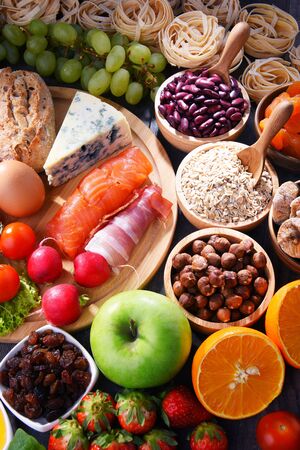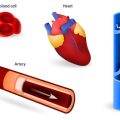Introduction: The Importance of Protein in Recovery
Protein plays a central role in the body’s recovery process, whether you are healing from illness, surgery, injury, or simply striving to maintain optimal health. For those living in the UK, understanding how to meet protein requirements within the context of traditional British diets is particularly important. Adequate protein intake supports muscle repair, immune function, and overall tissue regeneration—key factors that speed up recovery and help individuals return to their daily routines more effectively. The unique dietary habits and food preferences found across Britain mean that not all sources of protein are equally accessible or suitable for everyone. By considering these cultural nuances, we can tailor advice that respects local eating patterns while ensuring that people receive the vital nutrients they need for effective recovery.
Understanding Protein Needs During Recovery
When recovering from illness, injury, or surgery, your body’s nutritional requirements change significantly—especially your need for protein. Protein plays a fundamental role in tissue repair, immune function, and the rebuilding of muscle mass. For patients across the UK, understanding these increased needs is essential to support a swift and effective recovery process.
During recovery, your body’s demand for protein may rise above the standard daily recommendation. This is because protein helps repair damaged tissues and supports the production of new cells, both crucial during healing. In fact, British dietetic guidelines often recommend that individuals in recovery consume more protein than usual to accelerate wound healing and maintain muscle strength.
Key Factors Influencing Protein Needs:
| Factor | How It Affects Protein Needs |
|---|---|
| Type of Recovery (e.g., surgical, post-illness) | Major surgeries or severe illnesses can increase protein requirements substantially due to greater tissue repair demands. |
| Age | Older adults often need more protein to counteract age-related muscle loss and support healing. |
| Activity Level | Physical therapy or increased mobility during recovery also raises protein needs. |
| Dietary Preferences (vegetarian/vegan) | Plant-based diets may require careful planning to ensure adequate intake of high-quality protein sources. |
How Much Protein Do You Need?
The NHS recommends that healthy adults aim for about 0.75g of protein per kilogram of body weight daily. However, during recovery, some experts suggest increasing this amount to between 1.0–1.5g per kilogram, depending on individual circumstances. For example, a 70kg adult might need up to 105g of protein each day while recuperating.
What Should UK Patients Consider?
- Cultural Food Choices: Consider traditional British foods like eggs, dairy products, fish, and lean meats as primary protein sources.
- Access and Availability: Make use of locally available options such as British farmed poultry or pulses like lentils and beans.
- Dietary Restrictions: If you have allergies or follow a vegetarian/vegan diet, plan meals carefully to meet your protein targets with plant-based alternatives.
Prioritising protein as part of your daily intake not only aids in physical healing but also helps maintain energy levels and overall wellbeing throughout your recovery journey. Always consult with your GP or a registered dietitian for personalised recommendations tailored to your health status and lifestyle.

3. Traditional British Protein Sources
When it comes to supporting your recovery through diet, turning to time-honoured British foods can be both comforting and highly effective. Classic British cuisine offers a wealth of high-quality protein options that are easily accessible and deeply rooted in local culture. Understanding these sources can help you make informed choices as you work towards improved health and strength.
Fish: The Heart of the British Table
From the iconic fish and chips to simple grilled fillets, fish has long been celebrated across the UK for its flavour and nutritional benefits. Oily fish such as salmon, mackerel, and trout are particularly rich in protein and provide essential omega-3 fatty acids, which support muscle repair and reduce inflammation. White fish like cod and haddock are also excellent lean protein choices that fit seamlessly into a variety of meals.
Lean Meats: Wholesome and Versatile
British cuisine features a range of lean meats, including chicken, turkey, beef, and lamb. Opting for skinless poultry or lean cuts of red meat helps maximise protein intake while keeping saturated fat to a minimum. Roast dinners, grilled meats, and traditional stews made with lean cuts are all delicious ways to boost your protein consumption.
Dairy: A Staple in Every Home
Dairy products like milk, cheese, and yoghurt are central to many British dishes. They provide not only high-quality protein but also calcium for bone health—crucial during recovery. Choosing semi-skimmed or low-fat varieties allows you to enjoy the benefits without unnecessary extra calories. From a classic bowl of porridge with milk to a simple cheddar sandwich, incorporating dairy is both easy and satisfying.
Eggs: The Everyday Essential
Eggs are another cornerstone of the British diet, prized for their versatility and nutrient density. Whether enjoyed boiled at breakfast, scrambled on toast, or as part of a hearty omelette, eggs deliver complete protein along with important vitamins and minerals. Their convenience makes them an ideal choice for anyone looking to support recovery without spending hours in the kitchen.
Bringing It All Together
By embracing these traditional British protein sources—fish, lean meats, dairy, and eggs—you can create balanced meals that not only honour local culinary traditions but also provide the building blocks necessary for effective recovery. Making these foods a regular part of your diet can help you achieve better health outcomes while enjoying the flavours of home.
4. Plant-Based Protein Options in the UK
For those following vegetarian or vegan diets, or simply looking to diversify their protein intake, the UK offers a wealth of plant-based protein sources that support effective recovery. These options are not only nutritious but are also readily available in most British supermarkets and local shops. Embracing these alternatives can be especially helpful for individuals recovering from illness or surgery, as they offer essential amino acids, vitamins, and minerals crucial for healing.
Locally-Available Protein-Rich Pulses and Legumes
Lentils and beans are classic staples in British plant-based diets. Lentils, whether red, green, or Puy, are packed with protein and fibre, making them ideal for soups, stews, and salads. Beans such as haricot (used in baked beans), kidney beans, chickpeas, and cannellini beans are also widely available and form the base of many comforting British dishes. Including a variety of these pulses ensures a balanced amino acid profile.
Popular Supermarket Favourites
UK supermarkets have embraced the plant-based trend by offering an array of meat alternatives and high-protein foods. Products like Quorn (mycoprotein-based), tofu, tempeh, and supermarket own-brand vegan burgers or sausages provide convenient ways to meet protein needs without animal products. Many of these items are fortified with additional nutrients like vitamin B12 and iron to further support recovery.
Comparison of Common Plant-Based Protein Sources in the UK
| Protein Source | Typical Protein Content (per 100g cooked) | Key Nutritional Benefits | Availability |
|---|---|---|---|
| Lentils | ~9g | High in fibre, iron, folate | Widely available (supermarkets & local shops) |
| Chickpeas | ~7g | Source of zinc, iron, magnesium | Canned/dried in most supermarkets |
| Quorn Mince | ~14g | Low fat, contains fibre & iron (fortified) | Frozen aisles in major supermarkets |
| Tofu | ~8g | Contains calcium (if set with calcium sulphate), iron | Dairy-free/vegetarian section in supermarkets |
| Baked Beans (Haricot) | ~5g | B vitamins, low fat, contains fibre | Canned goods aisle everywhere in the UK |
| Pumpkin Seeds | ~19g | Zinc-rich, healthy fats, magnesium | Baking/snack section in supermarkets & health food shops |
Tips for Incorporating Plant-Based Proteins into Your Recovery Diet
Add lentils or beans to traditional British recipes such as shepherd’s pie or stews for an extra protein boost. Consider swapping meat for Quorn mince in spaghetti bolognese or tacos. Tofu can be marinated and added to stir-fries or salads. For easy snacks, keep a handful of roasted chickpeas or pumpkin seeds handy. Remember to combine different plant proteins across meals to ensure you receive all essential amino acids during your recovery journey.
5. Tips for Incorporating Protein into Every Meal
Ensuring you get enough protein throughout the day doesn’t have to be difficult or time-consuming. Here are some practical and culturally relevant ways to include high-quality protein in every meal, making it easier for you to meet your recovery goals while enjoying familiar British favourites.
Breakfast: Start Strong
Traditional British breakfasts provide an excellent opportunity to boost your protein intake. Try adding poached or scrambled eggs on wholegrain toast, a serving of baked beans, or a side of grilled mushrooms. For a quicker option, Greek yoghurt topped with berries and a sprinkle of oats can offer both protein and fibre.
Lunch: Balanced & Filling Choices
For lunch, opt for lean meats such as chicken breast in a classic sandwich or wrap, or choose tinned tuna or salmon mixed with light mayonnaise and served with salad. If you prefer vegetarian options, consider lentil soup or a jacket potato filled with cottage cheese and chives—both British staples packed with protein.
Dinner: Hearty Main Meals
A Sunday roast with roast beef, chicken, or lamb is a traditional way to enjoy protein-rich meals. Pair your meat with plenty of vegetables and perhaps some Yorkshire pudding for a comforting meal. If you’re seeking plant-based alternatives, try dishes like shepherd’s pie made with lentils or chickpea curry served with brown rice.
Snacks: Protein Boosts Between Meals
Keeping up your protein intake doesn’t stop at main meals. Snack on slices of cheddar cheese with wholegrain crackers, hummus with carrot sticks, hard-boiled eggs, or even a handful of mixed nuts. These options are not only convenient but also fit seamlessly into the British snacking culture.
Meal Planning Tips
Plan ahead by batch cooking protein-rich dishes such as stews or casseroles that can be easily reheated. Consider using leftover roast meats in salads or sandwiches the next day. By consciously including a source of protein in each meal and snack, you’ll consistently support your recovery and overall well-being.
6. Common Pitfalls and How to Overcome Them
When aiming to boost protein intake for effective recovery, many people in the UK encounter a range of challenges. Understanding these common pitfalls—and knowing how to address them—can make your journey towards better health smoother and more sustainable.
Lack of Variety in Protein Sources
Relying heavily on just one or two protein-rich foods, such as chicken or eggs, can lead to dietary boredom and nutritional imbalances. To overcome this, try incorporating a wider array of British favourites like salmon, mackerel, lean beef, and plant-based options such as beans and lentils. Exploring different preparations—think cottage pie with lentils or grilled trout—can also help keep meals interesting.
Misunderstanding Portion Sizes
It’s easy to either under- or overestimate how much protein you’re actually consuming. Use simple tools like hand-sized portions or kitchen scales to ensure accuracy. For example, a portion of cooked chicken breast about the size of your palm generally contains 25–30g of protein. Reading food labels on supermarket products can also offer helpful guidance.
Time Constraints and Convenience
Busy schedules often make it tempting to reach for less nutritious, processed foods that are quick but low in protein. Combat this by preparing high-protein snacks in advance—such as boiled eggs, Greek yoghurt pots, or roasted chickpeas—or selecting ready-to-eat options available at most UK supermarkets, like pre-cooked prawns or tinned tuna.
Dietary Restrictions and Preferences
Vegetarians, vegans, and those with food allergies can find it challenging to meet their protein needs. Luckily, there are plenty of British-sourced alternatives: Quorn products, pea protein powders, oat-based drinks fortified with extra protein, and nut butters are all excellent choices. Don’t hesitate to consult a registered dietitian for tailored advice if you have specific restrictions.
Overcoming Social Barriers
Social events in the UK—be it pub outings or Sunday roasts—may not always align with your higher-protein goals. Planning ahead is key: check menus for protein-rich dishes (like grilled fish or steak), suggest venues known for their balanced options, or offer to bring a high-protein dish to gatherings.
Staying Consistent Without Sacrificing Enjoyment
The key is balance: allow yourself flexibility while making conscious choices most of the time. Remember, effective recovery is supported by consistency—not perfection—in your eating habits. By addressing these common hurdles proactively, you’ll be better equipped to navigate British diets and achieve your recovery goals through optimal protein intake.
7. Conclusion: Tailoring Protein Intake for a Healthier Recovery
As you embark on your recovery journey, making thoughtful, protein-rich choices is key to supporting your body’s natural healing processes. By embracing the variety and richness of British dietary preferences—from lean meats like chicken and turkey to classic fish dishes such as salmon or mackerel, and even plant-based options like lentils, beans, and eggs—you can ensure you’re getting the essential nutrients needed for optimal recovery. Remember, it’s not about drastic changes but rather incorporating more high-quality proteins into your everyday meals, whether that’s a comforting bowl of cottage pie with extra lean mince or a simple poached egg on wholegrain toast. Your personal tastes, cultural background, and lifestyle should guide your choices. By prioritising protein in ways that suit your routine and palate, you’ll be giving yourself the best chance at a swift and healthy recovery—one delicious meal at a time.


